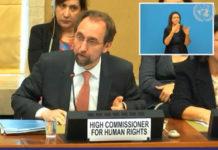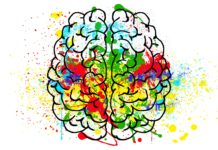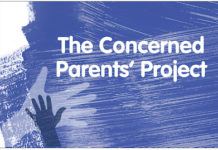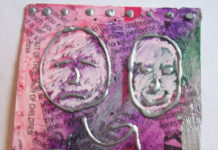Towards the Re-politicization of “Mental Illness”
In the models of other social movements, I implore us to advance a multifaceted, structural, cultural, and political analysis of mental illness in America, to illuminate the reality and mechanisms of sanism, and to then envision and implement ways of organizing American life around it that do not limit our potential for flourishing so drastically.
Questioning the Integrity of Psychiatry
The Royal Australian and New Zealand College of Psychiatrists claimed that “the prescription of antidepressant or antipsychotic medications is something that a psychiatrist only ever does in partnership with the patient and after due consideration of the risks and benefits.” How could a responsible professional body make an assertion so patently wrong?
UN Meeting on Human Rights in Mental Health: A Response
On May 14 and 15, the UN Office of the High Commissioner for Human Rights held a meeting on human rights in mental health. The event represented tensions in the United Nations between the promotion of mental health and the promotion of the human rights of people with psychosocial disabilities under the Convention on the Rights of Persons with Disabilities.
Researchers Advocate for More Robust Informed Consent in Psychotherapy
Paper outlines recommendations for more thorough informed consent process in psychotherapy, which authors proclaim is an “ethical imperative."
Therapists Collaborate with Clients through Metatherapeutic Communication
Researchers develop an initial framework for understanding metatherapeutic communication practices that may inform future integration of collaboration in psychotherapy.
ECT Shock Treatment Class Action – Case Update April 2018
In March, 2018, the Court issued an Order denying class certification in the case filed against the manufacturers of ECT shock devices. Attorneys for the ECT victims strongly disagree with the Court's assessment, and have now petitioned the Ninth Circuit Court of Appeals for permission to appeal the ruling denying class certification.
“Psychiatric Meds Saved Your Life,” and Mine
It's not about whether it's right or wrong, true or false that psychiatric drugs save lives. It's about telling the stories that aren't being told. That's why psychiatric drugs saved my life after they destroyed my health and nearly killed me. They gave me something I care about and am passionate about writing about. They gave me a pathway to bring healing to others.
Book Review: The Other Mrs. Smith by Bonnie Burstow
In The Other Mrs. Smith, Dr. Burstow chose to use the fiction format, presumably because she felt it was the best way for readers to understand what it is like to experience electroshock and deal with the aftermath of massive memory loss. In this she succeeds spectacularly.
Scientists Fight Against the Myth of the Normal or Optimal Brain
A new study out of Yale University uses evolutionary biology to debunk the idea that there is a “normal” or “optimal” brain.
“How Long a Time”: Ten Cold Hard Truths For Ending Psychiatric Abuse
Here are the Ten Cold Hard Truths we must ALL confront in our organizing efforts. If we fail to understand and grasp these truths we will ALL be susceptible to “burnout” and/or a slide into dead-end reformist type strategies that will only derail our efforts to reach the day when we can truly end all forms of psychiatric abuse.
The Concerned Parents’ Project: 31 Questions
The Concerned Parents’ Project grew out of the idea that there may be parents out there who are confused and bewildered by the mixed messages on what it is to have normal and healthy childhood experiences. We posted a new question and answer for parents each day in March.
10 Things I Learned in 5 Years Consulting With People Coming Off Psych Drugs
It's been over 5 years since I started offering non-medical consultations to people in the process of coming off or hoping to come off psych drugs. I wanted to share here some things I have learned in this process. Despite how far we have come, we have a long way to go in the quest to liberate all who wish to be liberated from psychiatry.
Researchers Challenge Industry-Friendly Depression Guideline
Review of a new mixed depression guideline reveals financial bias of guideline developers and lack of evidence supporting recommendations for prescribing of antipsychotics.
Should We Screen for Adverse Childhood Experiences?
One author outlines the foundations of Adverse Childhood Experiences (ACEs) research, addressing its dimensions, limitations, and potential future directions.
Study Examines the Difficulty of Withdrawing from Antidepressant Drugs
Correcting unnecessary long-term antidepressant use is difficult and met with apprehension by providers and service-users.
Police Violence Victims at Increased Risk of Psychotic Symptoms
Researchers examine links between police victimization and psychotic symptoms in a topical new study.
Psychiatry: The Brain is a Malignant Tumor!
We have persistently failed in trying to influence psychiatry with scientific argument because we view the brain as normal and they think it is a cancer. Imagine how weird it must seem to them: We are talking about an organ inside our heads that we treasure, and they are peering at it the way a surgeon studies a neuroblastoma.
Duration of Untreated Psychosis Revisited: Response to the Goff Paper
Based on the studies cited, it seems hard to support the assertion that “early initiation of antipsychotics may improve long-term course of the illness.” This raises an urgent question about initial treatment. Doesn’t it make sense to try to capture all of those individuals who might get through a psychosis without drugs?
Rigorous Study Finds Antidepressants Worsen Long-Term Outcomes
A new study conducted by Jeffrey Vittengl at Truman University has found that taking antidepressant medications resulted in more severe depression symptoms after nine years.
The State of Animal Psychiatric Research
Since animal research is the foundation for moving on to clinical trials despite its poor quality, it is likely that this leads to many superfluous trials in humans based on false hopes. This leaves a risk of adverse events for the participants in the trials, and subsequently the patients.
Study Examines Overdiagnosis of Mental Health Disorders in Childhood
Are diagnoses of mental disorders among children and adolescents in developed countries disproportionate to disease prevalence trends?
To See An Atom: Psychosis and Ecology
Having smelled colors, heard ghosts, grown ecstatic, glimpsed Gaia, chatted with cartoons, and been overwhelmed by persistent paranoia and fear while under the influence of LSD, a modified fungus, I cannot distinguish how such plant-induced experiences differ from what psychiatrists call psychosis.
World Mental Health Day 2017: Challenging the Messages – A Call to Action
If we can have a presence and visibility, this could be life-changing for individuals with no current access to the bigger truths about psychiatric theory and practice. So let's infiltrate and disrupt the hashtags #WMHD2017 #worldmentalhealthday and share messages of hope, healing, validation and solidarity!
In Memoriam: Matt Stevenson
MIA blogger Matt Stevenson, who was best known to the MIA community for his frequent—and insightful—comments on MIA posts, died last Thursday. He took his own life, at age 32. His last message was this: Don't let a psychiatric diagnosis rob you of your hope.
Researchers Question Add-On Treatment for ‘Schizophrenia’
A common practice when antipsychotics are found to be ineffective for schizophrenia is to prescribe a second, additional psychoactive medication. Now, a new study suggests that this practice is not supported by the research.

































